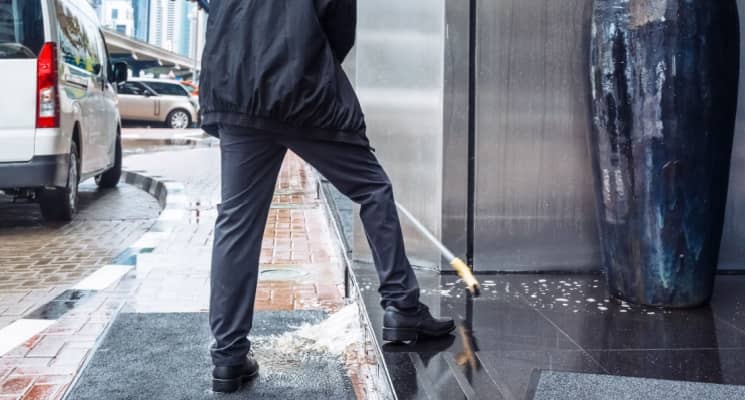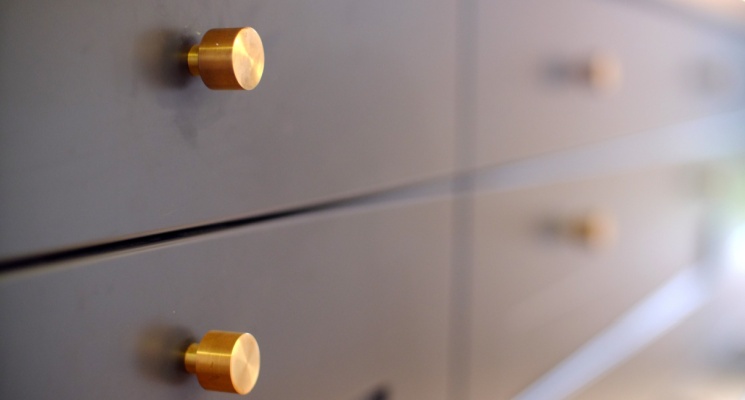The weather in Dubai and the UAE in general can be quite humid, giving birth to numerous problems that can be harmful to your home in the long run. These problems can be addressed by getting home maintenance services from professional companies. ServiceMarket offers home maintenance services alongside providing annual maintenance contracts whereby the maintenance company handles your home maintenance problems year-round.
No one enjoys uncomfortable humidity levels at home – it can be detrimental to your health and the skin. Not only that, it can alter the air quality and cause your HVAC system to get overloaded as it might try to overheat or over-cool your house depending on the humidity levels it detects.
While low humidity levels will cause several issues like splitting wood floors and furniture, chipped paint, and even damage to some of your favorite electronic gadgets, high humidity does not help either. It is the perfect breeding spot for mold and harmful viruses to thrive in your home.
As scary as the extremities sound, the solutions are just that easy. A simple tweaking of your ventilation at home is the first thing you can do to manage humidity levels in your home. Keep reading to learn more about how to manage humidity at your home in Dubai.
1) Fix Moisture Related Issues
Excessive moisture in the air could mean flooded basements or leaky ceilings – look out for them and seal them up as soon as possible. Caulk/weatherstrip all sorts of openings in the walls, doors, or windows might be potential sources of unnecessary moisture retention. Ensure that the draining spouts outside your home’s base are far enough to prevent rainwater accumulation. Look out for the changes you can bring in the landscaping to reduce this problem.
Invest in storm doors with double and triple pane windows as they will protect the interiors from the cold and make your HVAC systems more energy efficient. Additionally, insulate all the cool-water pipes to minimize cool surfaces that could retain moisture. Make sure your air registers are clear and unclogged to allow proper airflow.
If you realize that this problem exists only in some rooms with poor air circulation, focus on those rooms by installing dehumidifiers. It could be anywhere from laundry rooms to basements – anywhere where moisture levels are likely to be higher. As for exhaust fans, keep them free of lint, grease, or any other dust particles that could restrict their efficiency.
2) Invest in High-Efficiency Heat Pumps
High-efficiency heat pumps can change the game by altering indoor humidity conditions. Some of them are equipped with features like master controls for adjusting the moisture level. Similarly, during warm weather, the heat pumps can be adjusted to eradicate the moisture without over-cooling your house. However, with heat pumps, there is a constant need for maintenance and servicing. With the annual maintenance contract, you can get your heat pumps serviced regularly.
3) Adequate Ventilation is The Key
During summer when the humidity outside is exceptionally high, it is better to keep all the doors and windows shut and let the HVAC system do its trick. The artificial ventilation will circulate air better without risking property or health damage.
Similarly, ensure that the exhaust fans routed outwards are cleaned and serviced regularly, or else the absorbed moisture gathered from laundry/shower/cooking would be dumped back into the home instead of being released outdoors. In other words, any place that is dark or has poor ventilation will generate condensation and become the perfect breeding ground for mold.
Unused fireplaces can also generate unnecessary moisture, therefore let proper air circulation throughout the fireplace so that condensation cannot occur around the masonry.
Some houses have crawl spaces, which can also be the most significant source of increasing humidity levels as moisture enters your home from this shallow space. Fill the space with gravel that will work as a moisture barrier. If you have the budget, consider changing the flooring system altogether.
During the rainy season, check if your gutters are doing okay and whether they are appropriately directing water away from the home’s foundation. Before the rainy season starts, consult a repairman to clean or maintain the gutters to avoid any extra hassle.
4) Do Not Hesitate to Use Air Conditioners
Apart from using heat pumps, it is advisable to use air conditioners to reduce indoor humidity levels. Air conditioners can remove the heat generated from the humidity, which, in turn, reduces moisture levels in the air. Simply lower the temperature by several degrees, ensuring the house does not get too cool or too dry.
People in humid regions often complain about their AC blowing hot air to almost no air. Look out for these symptoms and consult a maintenance specialist immediately.
5) To Dehumidify Or Not To Dehumidify
If you feel that HVAC systems are a serious commitment you do not want to take on at the moment, you can opt for a humidifier or a dehumidifier. If you have certain rooms in the house that need better ventilation or balanced humidity, invest in portable units.
However, if you feel that the entire house needs its humidity levels rebalanced, a whole-home humidifier or dehumidifier works just as well as any other HVAC system.
Final Thoughts
Indoor heating and cooling issues are common in every home. But, it does not have to be this troublesome if you have an annual maintenance contract. With the necessary adjustments and installments of the mentioned equipment, we hope that you too can make your home in Dubai the coziest and the safest place for your family and yourself.
To book home maintenance experts in Dubai, download the ServiceMarket mobile application for instant solutions to your humidity problems.







